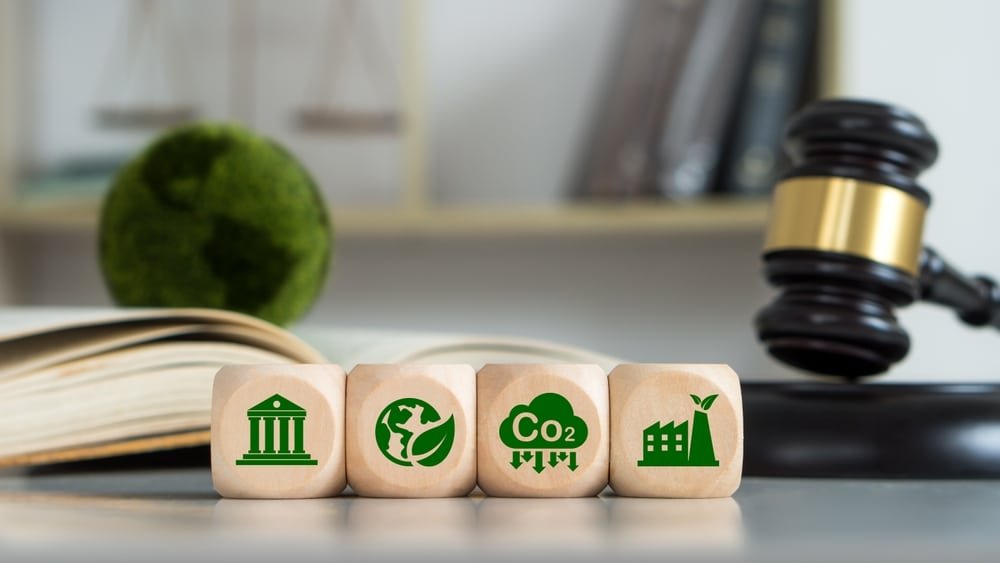Republic Act (RA) 11285, also known as the Energy Efficiency and Conservation (EE&C) Act of the Philippines, aims to promote responsible energy use, safeguard the environment, and support the country’s economic and social development goals. The law hopes to pave the way to a truly sustainable future for the country.
So who does this apply to, and what are they required to know and do? Here’s a quick overview.
What Does the Energy Efficiency and Conservation Act Do?
The EE&C Act institutionalizes energy efficiency and conservation in the country. It:
- sets a framework for energy efficiency and conservation policies,
- promotes the responsible use of energy, and
- encourages the adoption of renewable energy technologies.
In other words, it aims to normalize energy efficiency and conservation as a way of life for Filipinos and to promote the use of sustainable energy resources. Its implementation is crucial in ensuring a stable energy supply and offsetting the impact of costly imported fuels on local markets.
To Whom Does the Energy Efficiency and Conservation Act Apply?
The EE&C Act applies to all businesses in the Philippines, with different obligations depending on their annual energy consumption. The Department of Energy (DOE) has categorized businesses into two types- Type 1 and Type 2 establishments based on their energy usage.
- Type 1 businesses have an annual energy consumption of 500,000 kilowatt hours (kWh) to 4 million kWh
- Type 2 businesses have an annual energy consumption of more than 4 million kWh
These are businesses that are medium to large consumers of electricity. Both Type 1 and Type 2 establishments have specific obligations that they must comply with to ensure Energy Efficiency and conservation.
Certain businesses that consume 100,000 kWh but less than 500,000 kWh are classified as Other Designated Establishments.
If you’re a small business owner with plans to scale up, it is still worthwhile to read on and explore what will be required of you in the future.
Obligations for Designated Establishments (DE)
The obligations for DEs include:
- incorporating an ISO 50001 or similar energy management system policy into business operations,
- establishing programs promoting energy efficiency, conservation, and sufficiency,
- maintaining records of monthly energy consumption data, and
- establishing annual targets for implementing energy efficiency projects.
The designated establishments must submit a yearly energy consumption and conservation report to the DOE by April 15th of each year and conduct an energy audit every 3 years. They are also required to hire a certified energy auditor or an accredited Energy Service Company (ESCO) to conduct the audit and submit a report to the DOE.
Mandatory Hires
DEs are expected to hire either a Certified Energy Conservation Officer (CECO) or a Certified Energy Manager (CEM) based on their business type.
- The CECO oversees and maintains facilities to ensure compliance with energy usage regulations.
- The CEM is responsible for planning, leading, managing, coordinating, monitoring, and evaluating sustainable energy management.
The CECO and CEM are responsible for implementing and improving energy efficiency measures, conducting regular energy audits, monitoring and managing energy control and consumption, and preparing periodic reports on energy consumption and conservation programs.
Roles of Agencies
The implementation of RA 11285 also involves the participation of various agencies. Energy Service Companies (ESCOs) are responsible for providing products and services that promote effective energy usage and cost savings. They must be certified to demonstrate technical and managerial proficiency in energy efficiency projects.
Meanwhile, the DOE sets the minimum energy performance standards for commercial, industrial, and transport sectors in consultation with stakeholders. This includes labeling program mandates for manufacturers of energy-consuming products, as well as the regulation of fuel economy for vehicles.
The DOE also oversees the development and implementation of the National Energy Efficiency Conservation Plan and conducts on-site inspections at designated establishments to ensure compliance with the EE&C Act.
Penalties for Non-Compliance
Failure to comply with RA 11285 and its regulations can result in penalties such as fines, revocation of accreditation, and even imprisonment. Businesses must take their obligations seriously to avoid these consequences.
Benefits of the Energy Efficiency and Conservation Act
First off, compliant businesses get to enjoy cost savings from reducing their consumption and energy waste, as well as from using more affordable renewable energy sources.
There are a variety of incentives for compliant DEs under the EE&C Act. They may be eligible for income tax holidays, duty-free imports, and government agency technical assistance.
But by far the most exciting benefit of the law is that by mandating businesses and the government to work together towards energy efficiency and conservation, Filipinos are empowered to create a sustainable economy and a more stable energy supply for the country.
And that’s on top of saving the planet.


